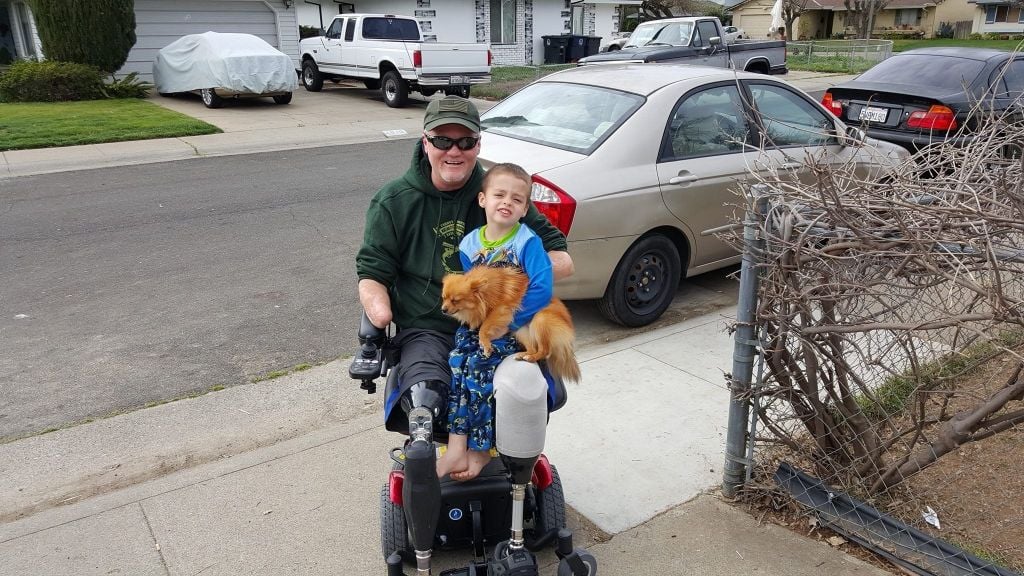Robert Downey worked alongside his wife at the elder care business they ran together. He was honorably discharged from the army after serving six years as a sergeant in the United States Army Military Police Corps. An independent and hardworking man, he was dedicated to caring for his family. Soon, everything would change.
It started with his son. Robert Downey’s 11-year-old developed a sore, and was soon diagnosed with MRSA – an infection that can be dangerous, but treatable if detected in time. The doctor cultured his son’s wound and flushed it with antibiotics.
A few weeks later, Robert noticed a sore on his own left arm. He went to the doctor – the same one who treated his son – and mentioned he was worried that he could have MRSA too. But the doctor told him he didn’t think so, cleaned the sore, and sent him home.
Robert visited the doctor a second time, after he started experiencing pain in the same arm. He told the doctor that this new symptom fit the description of what he knew about septic arthritis, but the doctor dismissed Robert’s concerns and diagnosed him with bursitis, a common inflammation of the joints.
Suddenly, one day, he collapsed at home. His pulse was faint, his wife, Cheri, says he was “hardly breathing,” and medical staff saw that his kidneys were already failing.
Even after all of this, doctors did not diagnose MRSA for another few days. A culture finally revealed that Robert had been right. The infection had advanced throughout his body, destroying his limbs and filling his lungs. Doctors had to amputate all four of his limbs, as they had developed gangrene. Robert went on life support.
His lungs cleared up after a couple months of treatment and healing. He was discharged from the hospital and sent home, but his life had been changed forever as a quadruple amputee. He and his wife had to give up their elder care business so that she could take care of him. They risked losing their house and their car because of the sudden loss of income and Robert’s medical expenses.

Because of MICRA’s cap on noneconomic damages, Robert can be compensated no more than $250,000 for his permanently altered life. His lawyer was able to reach a settlement that afforded him a house that better accommodates his abilities, but he is still missing things he needs.
Fortunately, since he is a veteran, the government funds his prosthetics. However, he says he lives check-to-check because he cannot work. He has to rely on friends and family for rides, because the settlement did not provide enough to cover a modified van that would allow him to drive himself – “I can’t afford to buy one on my own, so I go without.” He says he relies on credit for emergencies.
MICRA prevents people like Robert, who have overcome catastrophic medical malpractice incidents, from affording the things they need to adjust to their new lives. Robert wants to help reform this law to ensure that other survivors don’t have to struggle and go without things they need.


